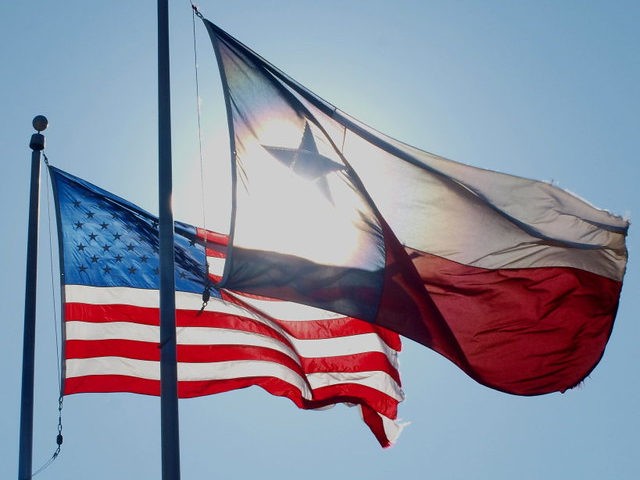Seventeen states filed an amicus brief Wednesday supporting the state of Texas’s lawsuit — filed directly to the U.S. Supreme Court — which targets Georgia, Michigan, Pennsylvania, and Wisconsin over claims of unconstitutional practices in their respective elections.
The states include Alabama, Arkansas, Florida, Indiana, Kansas, Louisiana, Missouri, Mississippi, Montana, Nebraska, North Dakota, Oklahoma, South Carolina, South Dakota, Tennessee, Utah, and West Virginia:
Texas filed the lawsuit on Monday, arguing that the battleground states “violated the Electors Clause of the Constitution because they made changes to voting rules and procedures through the courts or through executive actions, but not through the state legislatures,” as Breitbart News reported:
Additionally, Texas argues that there were differences in voting rules and procedures in different counties within the states, violating the Constitution’s Equal Protection Clause. Finally, Texas argues that there were “voting irregularities” in these states as a result of the above.
The lawsuit states that “certain officials in the Defendant States presented the pandemic as the justification for ignoring state laws regarding absentee and mail-in voting” and claims that the states “flooded their citizenry with tens of millions of ballot applications and ballots in derogation of statutory controls as to how they are lawfully received, evaluated, and counted.”
Calling the acts unconstitutional, the suit claims that the actions “had the same uniform effect—they made the 2020 election less secure in the Defendant States.”
“Those changes are inconsistent with relevant state laws and were made by non-legislative entities, without any consent by the state legislatures. The acts of these officials thus directly violated the Constitution,” the lawsuit, filed by Texas Attorney General Ken Paxton (R), says:
This case presents a question of law: Did the Defendant States violate the Electors Clause by taking non-legislative actions to change the election rules that would govern the appointment of presidential electors? These non-legislative changes to the Defendant States’ election laws facilitated the casting and counting of ballots in violation of state law, which, in turn, violated the Electors Clause of Article II, Section 1, Clause 2 of the U.S. Constitution. By these unlawful acts, the Defendant States have not only tainted the integrity of their own citizens’ vote, but their actions have also debased the votes of citizens in Plaintiff State and other States that remained loyal to the Constitution.
The Supreme Court has ordered the defendant states to respond to the lawsuit by Thursday.
“Response to the motion for leave to file a bill of complaint and to the motion for a preliminary injunction and temporary restraining order or, alternatively, for stay and administrative stay requested, due Thursday, December 10, by 3 pm,” the court wrote.
The State of Georgia has since fired back at the legal challenge, with a spokesperson for the Office of the Attorney General in Georgia telling Breitbart News that Paxton’s argument is “constitutionally, legally and factually wrong about Georgia.”
On Wednesday, President Trump referred to the Texas case as “the big one”:
“No candidate has ever won both Florida and Ohio and lost. I won them both, by a lot!” Trump added, using the hashtag, #SupremeCourt
Breitbart





